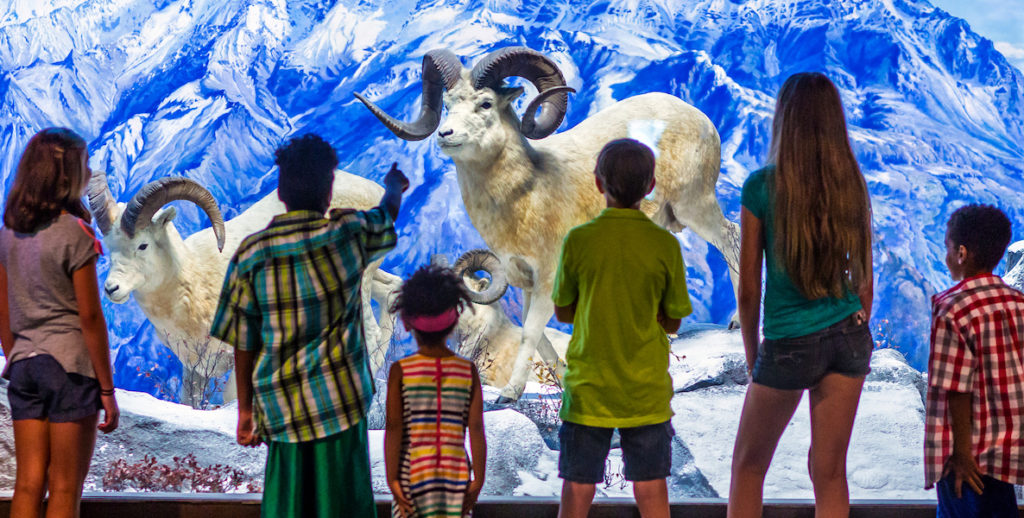It’s been all about the dinosaurs.
For decades, hulking replica skeletons of our prehistoric forebears have been the main attraction at, and most common association with, natural history museums around the world.
But with the appointment in 2017 of Scott Cooper, PhD, to CEO and president of The Academy of Natural Sciences at Drexel University comes a new school of thinking: Natural history museums should in every way be places of wonder.
“Many artists and citizens are making museums a little more accountable to their needs,” Thompson says.
“Their mission is to get people engaged and excited about the fact that science is happening all around us,” explains Nato Thompson. “The museum is not a passive place, but an active place.”
Thompson is the Sueyun and Gene Locks Artistic Director at Philadelphia Contemporary, the nonprofit contemporary arts museum that’s in the process of creating a permanent home in West Philly; in the meantime, it has been hosting traveling programming around the city, like a single-artist commission at the historic home, Lemon Hill, with artist Jane Irish, and a large-scale festival for the opening of Cherry Street Pier.
“Cities are changing, as we see every day, and many artists and citizens are making museums a little more accountable to their needs,” Thompson says. “People really feel that museums need to be more responsive to their needs, and audiences want to see museums reflect their own concerns. So there’s a large public discussion that’s happening [worldwide] that I think is quite exciting, because it means people care about museums!”
Friday’s event will follow the format of its predecessors and feature a conversation between a local museum expert and one from out of town; in this case, that’s Niki Ciccotelli Stewart, chief learning and engagement officer at The Academy of Natural Sciences, and artist Richard Pell, the founder and director of the Center for PostNatural History in Pittsburgh. Pell’s organization focuses on life forms that have been intentionally and heritably altered—like, Thompson says, glowing bunnies, produced with genetic material from jellyfish and rabbits.
“We are a scrappy, young organization that we hope will be a significant contributor to the cultural life of Philadelphia”
A question-and-answer portion will follow the conversation. “It’s meant to be a public thought moment, not just a lecture moment,” Thompson says.
The next conversation will be held in Miami and, in partnership with Prizm Art Fair, will present local Philly artists to the arts community there. “We feel it is important to, at times, bring the Philadelphia voice outside of Philadelphia,” Thompson says. Three more conversations will follow in 2020. All are free. “We are a scrappy, young organization that we hope will be a significant contributor to the cultural life of Philadelphia, and we are open to people with energy,” Thompson says.
Scrappy, young—two words that no one would ever use to describe dinosaurs, but that may just unlock the secret to rethinking antiquated approaches to museums, and the joy they have the potential to bring to Philly.
Friday, September 13, 6:30–8pm, free, The Academy of Natural Sciences of Drexel University, 1900 Benjamin Franklin Parkway.

